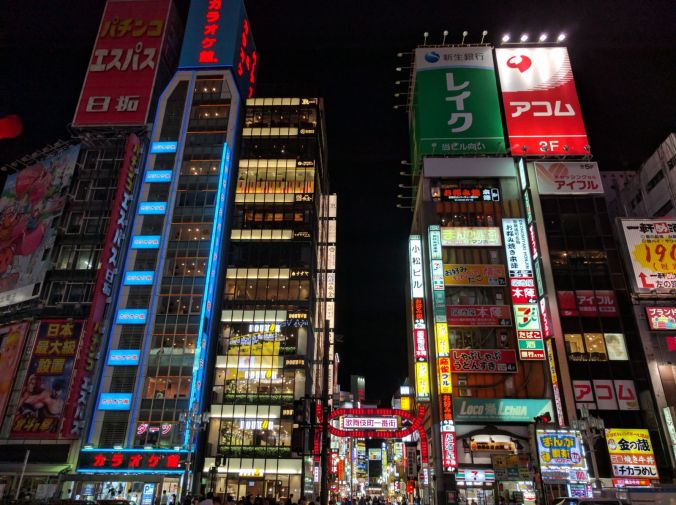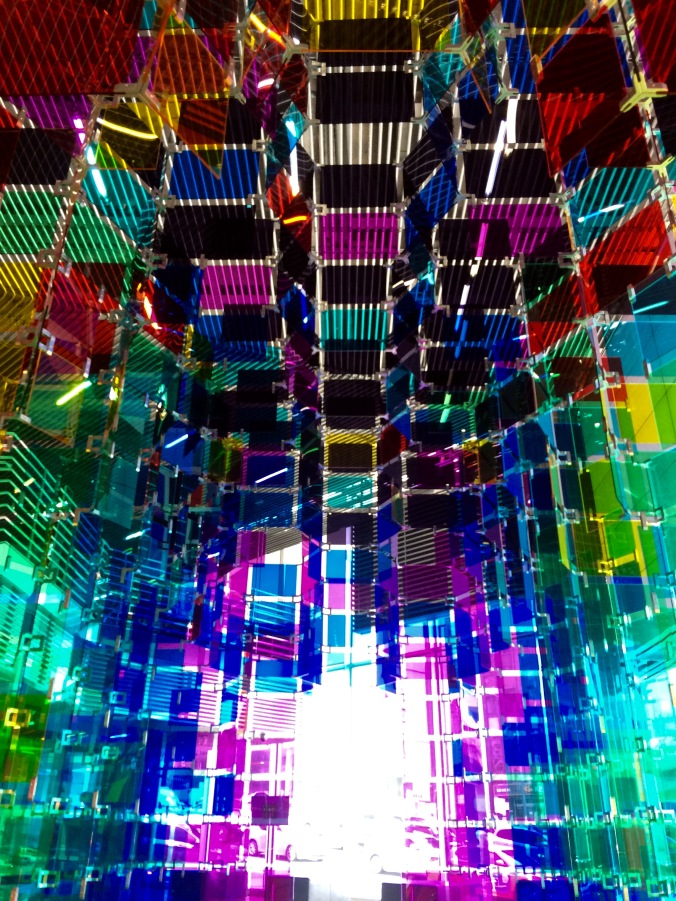14 days humid, sweaty days with 25 MBA classmates visiting 20 companies across Seoul and Tokyo. Our diverse visits ranged from SKK Entertainment (K-pop media conglomerate) to Sparklabs (start-up incubator), from Thyssen Krupp (German elevators) to TEPCO (Tokyo Power Co) to SAP Japan.

busy, fluorescent streets of Shin-juku, Tokyo
This deep dive into East Asia work cultures, combined with the past half year exploring Berlin’s start-up scene and Germany’s traditional economy, has shed light on how unique America’s entrepreneurial culture is. While the attitudes, trends and buzzwords of Silicon Valley may seem ubiquitous, they are actually quite contained within North America.
(these are all general stereotypes of course, just initial impressions from little ‘old me)
North America:
Now I may be biased since I come from large metropolitan U.S. cities, all buzzing with start-ups, VC’s and “disruptive innovation”, but these are the trends and attitudes that dominate start-up media. Rules don’t exist until the lawsuits come …and even then it is still up for debate. The goal of most start-ups is to grow fast, scale quickly and be acquired by an existing tech giant. The culture is much more risk-friendly, and intelligent failures are credible and valued.
Germany:
Germans value stability. Their Mittelstand economy historically comes from a lot of large family companies, and the goal of many businesses skew more towards steady, sustainable profits rather than exponential growth. On the start-up side, in general Berlin’s scene is overshadowed by Rocket Internet and the famous, ruthless Samwer brothers. Their style of duplicating U.S. start-ups, aggressively growing the business, and selling it back to their U.S. counterparts has been unapologetically forceful (and thus far, successful).
East Asia:
Asians act within established guidelines, as opposed to North America’s “act now. ask for permission after” attitude. Traditional Asian culture emphasizes team work, respect for elders and a clearly structured hierarchy that dominate work habits. These attitudes of course, affect how innovation is sparked and creativity fostered. We spoke with many executives and leaders in Korean & Japanese companies who spoke about the blurred lines between work and family life, since employees do not leave the office until their boss goes home. Or about the decreased levels of productivity overall, and needing to turn off the electricity at 9pm to force employees home.
This is in stark contrast to North America, where most employees do not have a sense of duty this strong to their work, or have the privilege of flexible work hours/location. And drastically different to Europe, where 6 weeks of holiday are the norm & employees drop their pencils to clock out at 5’clock.

inside Hyundai’s main showroom & HQ in Gangnam, Seoul
xx,
phyll